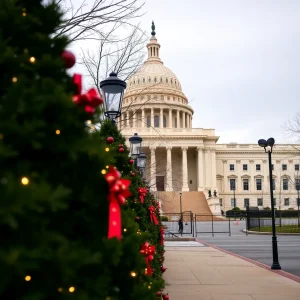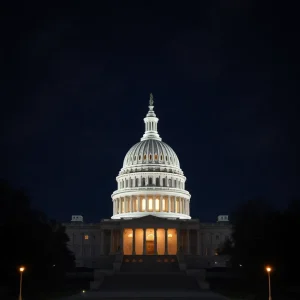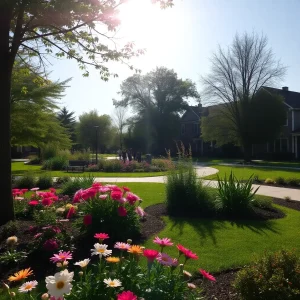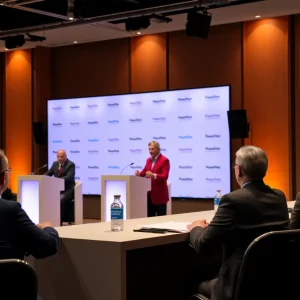Birmingham Secures $1.2 Million for Mental Health and Substance Use Services
BIRMINGHAM, Ala. – In a significant move to bolster community health resources, U.S. Representative Terri Sewell announced on Friday that Jefferson County and the Black Belt region of Alabama will receive a total of $1.2 million from the U.S. Department of Health and Human Services. This funding is aimed at expanding mental health and substance use services, addressing urgent health needs in the area.
Funding Breakdown and Purpose
The funds will be split evenly between two health organizations: Alabama Regional Medical Services (ARMS) in Birmingham and Rural Health Medical Program in Selma, each receiving $600,000. The initiative is part of a broader $240 million investment from the Biden-Harris administration, intended to launch or expand behavioral health care services nationwide.
Community Impact
Rep. Sewell highlighted the importance of the awards, stating, “When our most vulnerable Alabamians are in need of care, it is the amazing health care professionals at our Community Health Centers who stand in the gap. I am thrilled that the Biden-Harris Administration is working to expand mental health and substance use treatments for the patients that these facilities serve. These awards represent a critical step forward in our fight against the mental health and opioid crises.”
Voices from Health Leaders
Dr. Thomas Greer, Jr., CEO of Alabama Regional Medical Services, expressed gratitude for the funding, noting the increasing challenges posed by mental health and substance use disorders in the community. “ARMS is deeply honored to receive this significant funding from HRSA to expand and integrate behavioral health services into primary care. Our communities are increasingly facing mental health and substance use disorders challenges, and this award will allow us to better serve our patients,” he said.
Dr. Greer emphasized that with this investment, ARMS will enhance its capacity to address these challenges, aiming for improved mental health and wellness outcomes in Birmingham and the surrounding areas. “We thank HRSA for this award and for recognizing the need in the City of Birmingham and for their continued partnership with ARMS in providing quality health care to children, youth and families in our community,” he added.
Rural Health Medical Program’s Response
Keshee Dozier-Smith, CEO of the Rural Health Medical Program, echoed similar sentiments. “I want to thank the Health and Human Services 330 Grant Branch for allowing us the opportunity to receive this funding. I also want to thank Congresswoman Terri Sewell for continuing to support our efforts within her district. We know she fights every day for health equity and other needed resources in our community,” Dozier-Smith remarked.
With the allocation of these funds, both organizations are poised to make meaningful enhancements to the behavioral health services available to residents. There is a collective understanding among the leaders of these organizations that this investment will significantly contribute to the ongoing battle against mental health issues and substance abuse, particularly in underserved populations.
A Step Forward
The recent funding reflects a pivotal moment for mental health services in Alabama, aiming to equip the state’s healthcare providers with necessary resources for combating crises that have been exacerbated by the ongoing pandemic and economic challenges. As community health leaders prepare to implement new programs and services with this funding, there is cautious optimism about the future of mental health care in the region.
In conclusion, this financial support represents not only immediate relief for mental health and substance use treatment but also embodies a long-term commitment to health equity and access in Birmingham and beyond. The collaboration of local leaders and federal support signifies a proactive approach in addressing pressing health needs.



























